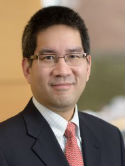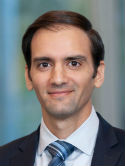Differential use of postoperative psychosocial and physical services among older adults with head and neck cancer Journal Article
| Authors: | Raab, G. T.; Restifo, D.; Tin, A. L.; Vickers, A. J.; McBride, S. M.; Wong, R. J.; Lee, N. Y.; Zakeri, K.; Shahrokni, A. |
| Article Title: | Differential use of postoperative psychosocial and physical services among older adults with head and neck cancer |
| Abstract: | Introduction: Older adults undergoing head and neck cancer (HNC) surgery often have significant functional and mental health impairments. We examined use of postoperative physical, nutritional, and psychosocial services among a cohort of older adults with HNC comanaged by geriatricians and surgeons. Materials and Methods: Our sample consisted of older adults who were referred to the Geriatrics Service at Memorial Sloan Kettering Cancer Center between 2015 and 2019 and took a geriatric assessment (GA) prior to undergoing HNC surgery. Physical, nutritional, and psychosocial service utilization was assessed. Physical services included a physical, occupational, or rehabilitation consult during the patient's stay. Nutritional services consisted of speech and swallow or nutritional consult. Psychosocial services consisted of psychiatry, psychology, or a social work consult. Relationships between each service use, geriatric deficits, demographic, and surgical characteristics were assessed using Wilcoxon rank-sum test or Chi-square test. Results: In total, 157 patients were included, with median age of 80 and length of stay of six days. The most common GA impairments were major distress (61%), depression (59%), social activity limitation (SAL) (54%), and deficits in activities of daily living (ADL) (44%). Nutritional and physical services were used much more frequently than psychosocial services (80% and 85% vs 31%, respectively). Receipt of services was associated with longer median length of hospital stay, operation time, and greater deficits in ADLs. SAL was associated with physical and psychosocial consult and lower Timed Up and Go (TUG) score; instrumental ADL (iADL) deficits were associated with physical services; and depression and distress were associated with psychosocial services. Discussion: The burden of psychosocial deficits is high among older adults with HNC. Future work is needed to understand the limited utilization of psychosocial services in this population as well as whether referral to psychosocial services can reduce the burden of these deficits. © 2023 Elsevier Ltd |
| Keywords: | controlled study; aged; cancer surgery; major clinical study; postoperative care; outcome assessment; cohort analysis; health care utilization; depression; length of stay; head and neck cancer; operation duration; distress syndrome; consultation; daily life activity; diet therapy; clinical effectiveness; elderly care; mental health; physiotherapy; geriatric assessment; physical disability; psychosocial intervention; older adults; frailty; very elderly; human; male; female; article; antisocial behavior; geriatric rehabilitation; geriatric deficits; supportive services |
| Journal Title: | Journal of Geriatric Oncology |
| Volume: | 14 |
| Issue: | 8 |
| ISSN: | 1879-4068 |
| Publisher: | Elsevier Inc. |
| Date Published: | 2023-11-01 |
| Start Page: | 101609 |
| Language: | English |
| DOI: | 10.1016/j.jgo.2023.101609 |
| PUBMED: | 37678051 |
| PROVIDER: | scopus |
| DOI/URL: | |
| Notes: | Article -- MSK Cancer Center Support Grant (P30 CA008748) acknowledged in PDF -- Source: Scopus |
Altmetric
Citation Impact
BMJ Impact Analytics
Related MSK Work








